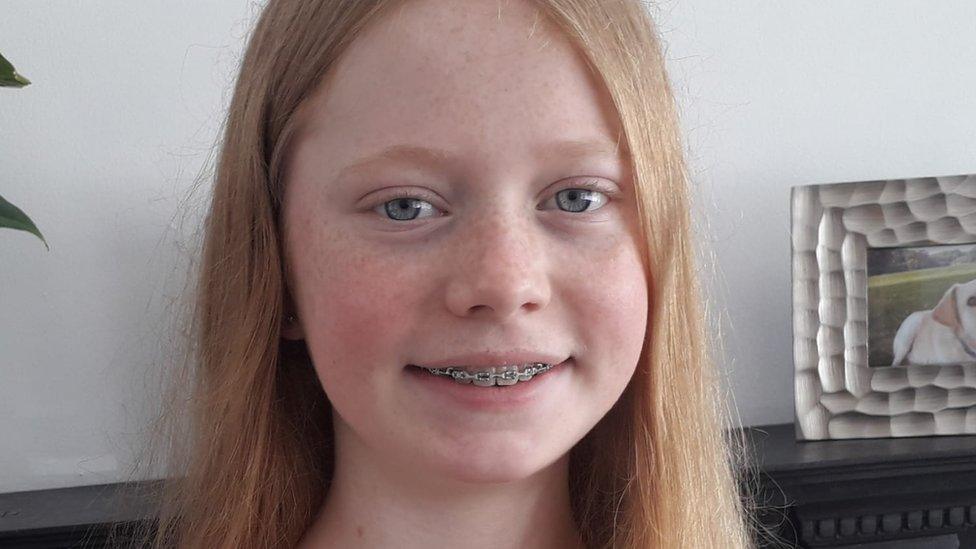Norwich 4D heart scan 'first for UK hospital'
- Published
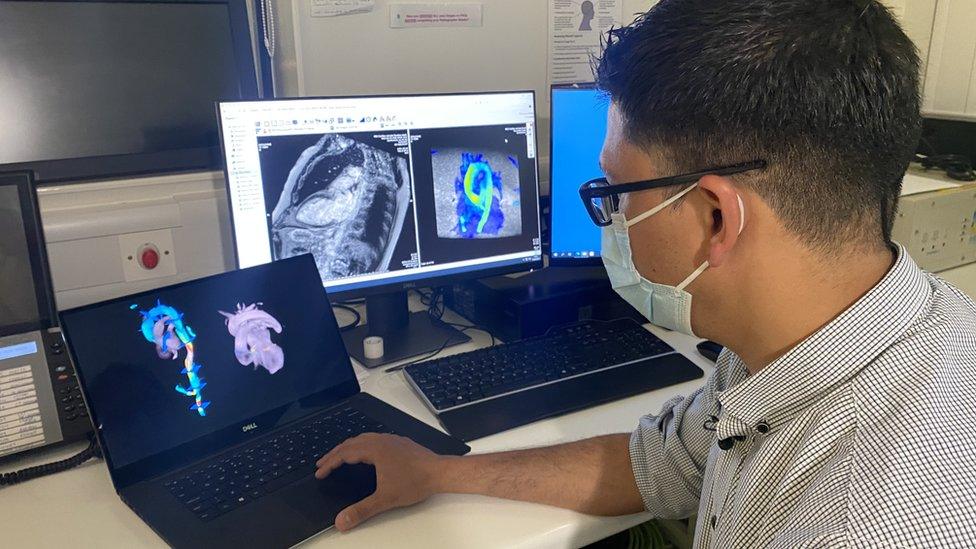
Honorary consultant cardiologist Dr Pankaj Garg has been working on imaging technology for heart disease since 2014
A 4D flow MRI scan is being used to pinpoint heart valve leaks in patients with heart disease for the first time in the UK, a hospital has said.
The equipment is part of an £8m project to replace ageing CT and MRI scanners at the Norfolk and Norwich University Hospital in Norwich, external.
Cardiologist Dr Pankaj Garg said it was "one of the most cutting-edge scans in the country".
Heart and circulatory disease are a leading cause of death in the UK.
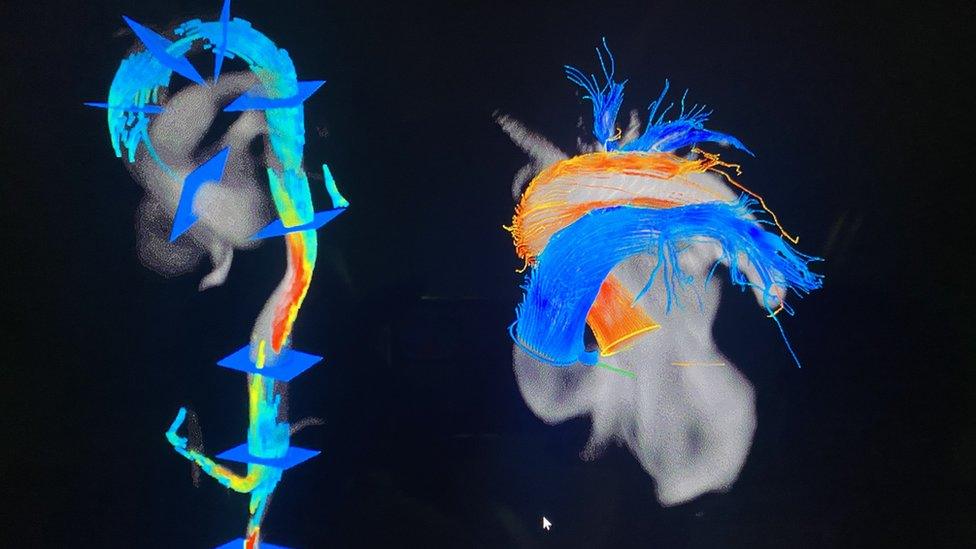
The patient is a retired PE teacher in his 80s who still jogs and has recently developed a leaky heart valve
Dr Garg has been working on imaging technology innovations to benefit heart disease patients since 2014.
This is the first time the University of East Anglia, external Norwich Medical School lecturer has been able to put his clinical work into practice.
He said the standard method of diagnosing heart valve disease is with ultrasound method called echocardiography, external, which is limited to only one-directional flow imaging in the heart.
"It is very exciting to be able to do 4D flow scans for our patients, which is more precise, and if we know more precisely where the leak is in a heart value, we are able to make better informed decisions," he said.
"Every patient who has their scan this way is having one of the most cutting-edge scans in the country and the patients are quite excited to be getting this expertise."
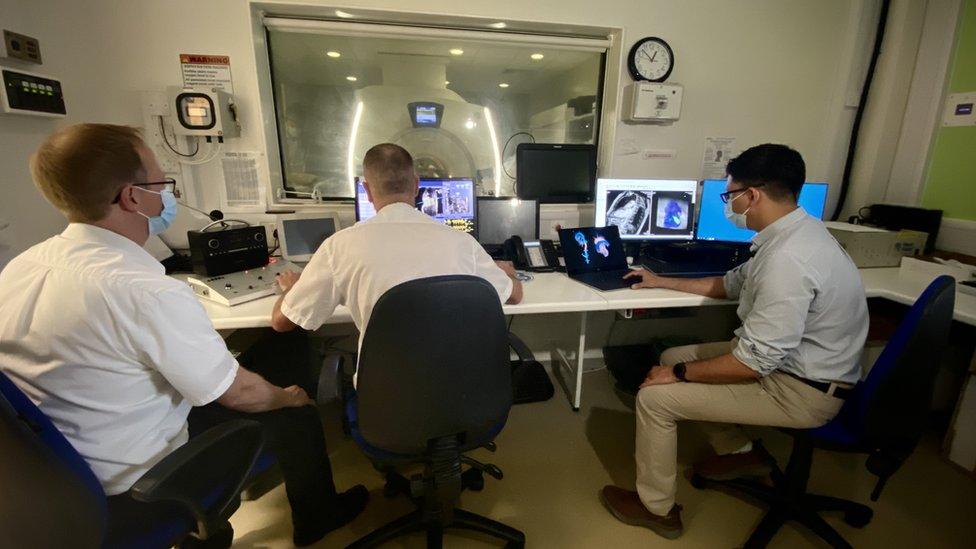
Radiographers David Hewson and Richard Greenwood (left and middle) examining the images with Dr Garg
An MRI (magnetic resonance imaging), external scan uses strong magnetic fields and radio waves to create detailed images inside the body.
The images created by the non-invasive 4D flow MRI scan allows cardiologists to see the heart in multiple directions, revealing where the blood is swirling around.
Dr Garg hopes to train more clinicians to use the technology.

Find BBC News: East of England on Facebook, external, Instagram, external and Twitter, external. If you have a story suggestion email eastofenglandnews@bbc.co.uk, external
Related topics
- Published14 June 2021
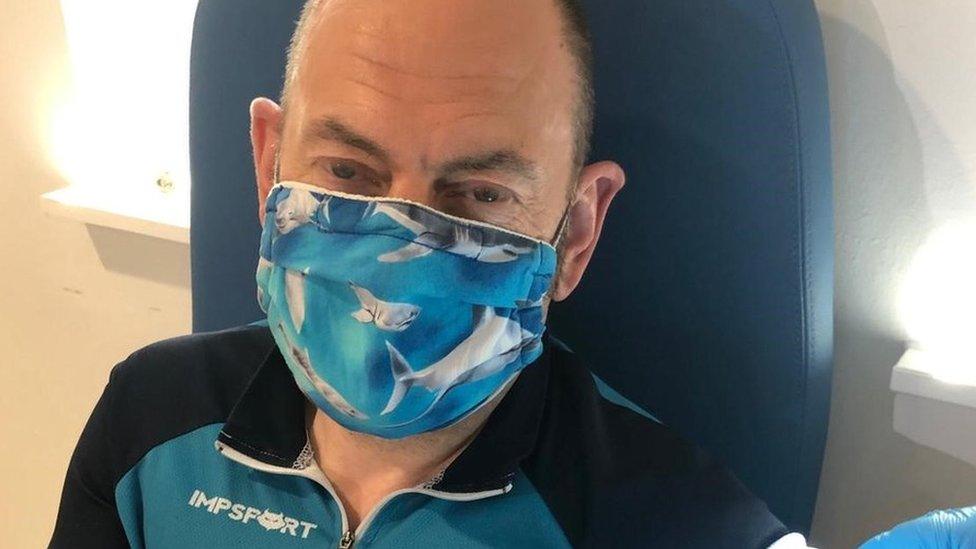
- Published21 February 2021
